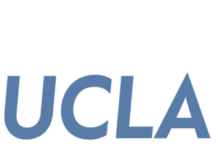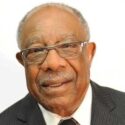 A group of more than 25 students held a protest at the admissions office of the University of California at Los Angeles. The students were calling for higher enrollments for underrepresented minority students at UCLA. When the admissions office officially closed for business for the day, 13 students refused to leave the premises, and were arrested by campus police. The protesters were cited for unlawful assembly and released from custody.
A group of more than 25 students held a protest at the admissions office of the University of California at Los Angeles. The students were calling for higher enrollments for underrepresented minority students at UCLA. When the admissions office officially closed for business for the day, 13 students refused to leave the premises, and were arrested by campus police. The protesters were cited for unlawful assembly and released from custody.
Under state law, UCLA is not permitted to consider race in its admissions decisions. This spring, 9,263 students from California were admitted to UCLA. Of this group, 3.8 percent are African Americans and 21.1 percent are Chicano/Latino. Asian Americans made up 45 percent of all admitted students and Whites were 25.8 percent of those admitted.












I heartily support the noble cause of the African-American students at UCLA. It is totally unacceptable that only 3.8% of students who have been accepted at UCLA this spring are African Americans.
The African American student protest at UCLA to increase the numbers of black students at the university mirrors the ‘sit-in’ protest of black students in the early 1960s. The content of the protest has changed, but the underlying causative agent for the protest has remained unchanged!
Racism is still alive and well. It may have changed its spots but not its nature. It seems as if we are now in a ‘new civil rights’ fight. In some areas, all the gains that we made during the ‘old civil rights’ struggle have been eroded and have now disappeared. It is as if, the civil rights struggle never happened.
We have no choice but to wage continuous struggles in all areas where racism is present. Because education has always been very important for the advancement of black Americans, we must intensify our fight to get our fair share of both quantity and quality of educational resources, funding, jobs, and student enrollments in colleges and universities.
In 2007, the only Gifted and Talented school in Greenville, South Carolina had only 6 African-American students. It was named after a historically black school, and was located in a predominantly black neighborhood. I launched a determined but research-driven attack on the School Board to increase African-American student numbers. I am very pleased to report that the numbers of African-American students at this Gifted and Talented school, in March 2012, was 196!
Determined, but informed protest does work. As a minority, this is usually the only political force that we have at our disposal. I, therefore, congratulate these brave young African-American students at UCLA and urge them to continue their protesting until the number of black students at UCLA is increased.
I think the bottom line to all of the incidents of lack of people of color representation is this. Without a critical mass of under-represented groups immersted into the major population within any setting; a decrease in development of cultural sensitivity and a lack in expansion of over all knowledge occurs. In other words learning becomes stagnant and racism becomes a way of thinking.